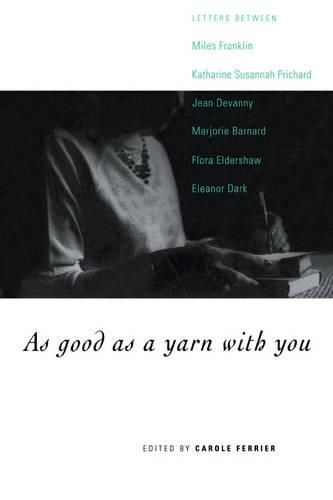Readings Newsletter
Become a Readings Member to make your shopping experience even easier.
Sign in or sign up for free!
You’re not far away from qualifying for FREE standard shipping within Australia
You’ve qualified for FREE standard shipping within Australia
The cart is loading…






This is a fascinating collection of the correspondence between six Australian women writers written between 1930 and 1957 and unpublished until now. Miles Franklin, Katharine Susannah Prichard, Jean Devanny, Marjorie Barnard, Flora Eldershaw and Eleanor Dark discuss their work, their personal lives and their views of the world in these letters, which were written with the purpose of providing sympathetic support and which bacome a source of friendship. Each of the women was centrally engaged with the social and political issues of her time, and these letters appear as a continuing dialogue written over three decades, from the Depression with its struggles and militancy, the nationalism and chauvinism of the Second World War, through to the conservatism of the Cold War. As non-fictional writing, the correspondence perhaps best articulates the complexity of the women’s lives and the clashes between their private and the public worlds in a way which more polished literary genres fail to do.
$9.00 standard shipping within Australia
FREE standard shipping within Australia for orders over $100.00
Express & International shipping calculated at checkout
This is a fascinating collection of the correspondence between six Australian women writers written between 1930 and 1957 and unpublished until now. Miles Franklin, Katharine Susannah Prichard, Jean Devanny, Marjorie Barnard, Flora Eldershaw and Eleanor Dark discuss their work, their personal lives and their views of the world in these letters, which were written with the purpose of providing sympathetic support and which bacome a source of friendship. Each of the women was centrally engaged with the social and political issues of her time, and these letters appear as a continuing dialogue written over three decades, from the Depression with its struggles and militancy, the nationalism and chauvinism of the Second World War, through to the conservatism of the Cold War. As non-fictional writing, the correspondence perhaps best articulates the complexity of the women’s lives and the clashes between their private and the public worlds in a way which more polished literary genres fail to do.